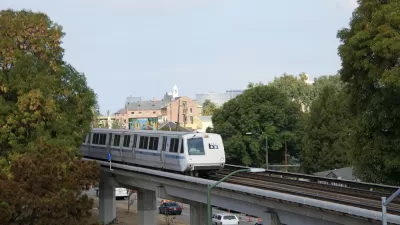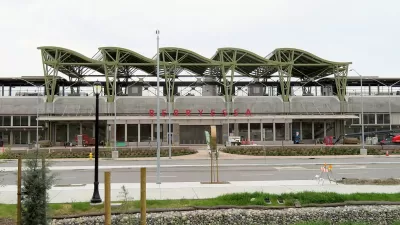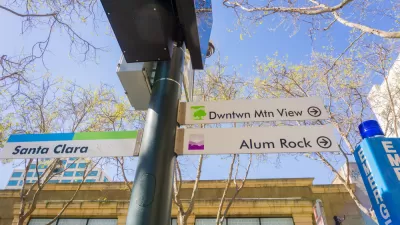Santa Clara County cities rebel against the agency's proposed plan to spend most of the Measure B funds on a Silicon Valley BART extension.

The Santa Clara Valley Transportation Authority (VTA) is retooling its plan for how to spend Measure B tax dollars after several cities protested the VTA's plan to spend most of the money on the Bay Area Rapid Transit (BART) extension to downtown San Jose. Now, the agency's revised plan will reallocate the funding to support more projects promised in the measure, reports Aldo Toledo for the Mercury News.
When the VTA proposed Measure B in 2016, "the VTA and supporters of the measure such as Silicon Valley Organization assured voters that that no more than 25% of the about $5.5 billion would go toward the BART extension," assuaging concerns from area cities that the focus on BART took away funds from badly needed local projects like pothole repairs and other road improvements. Santa Clara's Board of Supervisors agreed, rejecting the plan unanimously last month. "The public has been great about taking a regional perspective and supporting BART, but at some point we have to ask how we move people around our county in a way that is environmentally and economically sensible," says Supervisor Joe Simitian in the article.
The new plan, which increases the VTA's cost for the BART extension by over $2.5 billion, includes "$887 million for Caltrain grade separation projects, $156 million for increasing Caltrain’s corridor capacity, $230 million for Highway 85 improvements, $236 million for county expressways, $842 million for highway interchanges and a remaining $1.4 billion to be spent at the board’s discretion," writes Toledo.
FULL STORY: VTA comes up with new plan for spending Measure B funds after cities rebel

Maui's Vacation Rental Debate Turns Ugly
Verbal attacks, misinformation campaigns and fistfights plague a high-stakes debate to convert thousands of vacation rentals into long-term housing.

Planetizen Federal Action Tracker
A weekly monitor of how Trump’s orders and actions are impacting planners and planning in America.

In Urban Planning, AI Prompting Could be the New Design Thinking
Creativity has long been key to great urban design. What if we see AI as our new creative partner?

King County Supportive Housing Program Offers Hope for Unhoused Residents
The county is taking a ‘Housing First’ approach that prioritizes getting people into housing, then offering wraparound supportive services.

Researchers Use AI to Get Clearer Picture of US Housing
Analysts are using artificial intelligence to supercharge their research by allowing them to comb through data faster. Though these AI tools can be error prone, they save time and housing researchers are optimistic about the future.

Making Shared Micromobility More Inclusive
Cities and shared mobility system operators can do more to include people with disabilities in planning and operations, per a new report.
Urban Design for Planners 1: Software Tools
This six-course series explores essential urban design concepts using open source software and equips planners with the tools they need to participate fully in the urban design process.
Planning for Universal Design
Learn the tools for implementing Universal Design in planning regulations.
planning NEXT
Appalachian Highlands Housing Partners
Mpact (founded as Rail~Volution)
City of Camden Redevelopment Agency
City of Astoria
City of Portland
City of Laramie




























